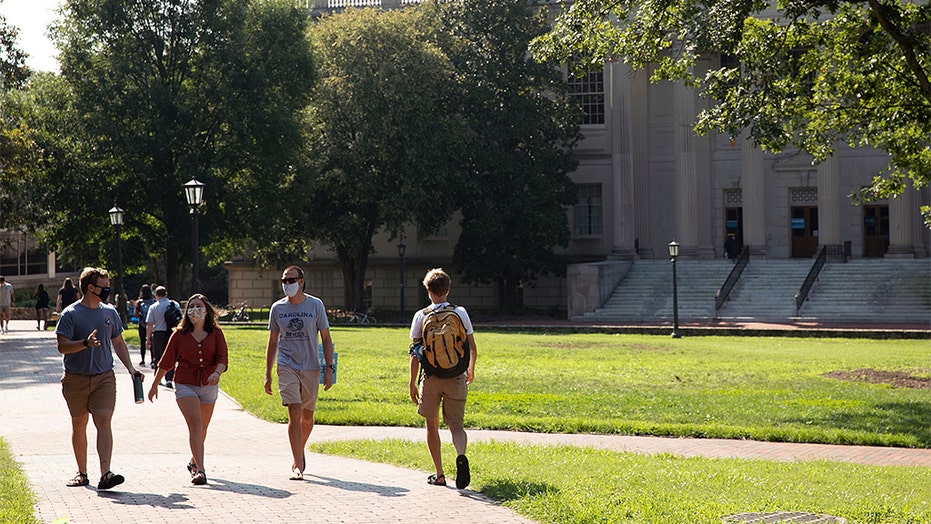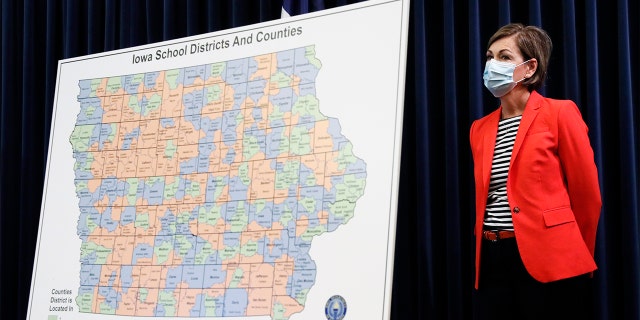
Fox News Flash top headlines for August 20
Fox News Flash top headlines are here. Check out what’s clicking on Foxnews.com.
As college campuses attempt to safely reopen their doors in the fall, coronavirus-tracing apps hoping to gain traction are increasingly betting on tech-savvy students becoming early adopters.
Though the digital tools launched months ago with much fanfare, they aren’t yet the game-changer authorities once hoped they’d be.
In large part, setbacks were due to tech hiccups, apprehension about privacy breaches, and bureaucratic hurdles, Politico reported Wednesday.
TRUMP SAYS LIKELIHOOD OF COLLEGE-AGED STUDENTS GETTING CORONAVIRUS IS EQUIVALENT TO THE FLU
The initial idea was that the apps would alert individuals who come into close proximity with someone who has tested positive for COVID-19. However, the reliance on Bluetooth technology, location-tracking through GPS, and Apple and Google's “decentralized” framework has been largely unpopular.
The U.S. Centers for Disease Control and Prevention offers information about proximity tracking tools on its website but has yet to propose any effort at the federal level.

Iowa Gov. Kim Reynolds listens to a question during a July news conference on the state’s guidance for returning to school during the coronavirus pandemic. (AP Photo/Charlie Neibergall, File)
In the beginning, only a handful of states committed to using the tech giants' software to develop their tracing apps.
Now, those once wary of the concept find themselves at a precipice as they move to reopen universities, and public health experts and state officials see promise in densely populated institutions as a testing ground.
After several weeks of development, the GuideSafe app will be made available to Alabamans and on Tuesday, Pennsylvania officials announced the state would release their own next month, joining the same “Exposure Notifications” application programming interface, or API, developed by Google and Apple that states such as Virginia, North Dakota, South Carolina and Wyoming are using in their own apps.
The University of Arizona is piloting its own program to present to the state health department this fall.
While state officials can only ask that their inhabitants use these apps, colleges may be able to require them.
How long they continue in-person operations that make that possible, however, is an open question.
On Monday, the University of North Carolina at Chapel Hill discarded plans for a partially in-person semester just one week after classes began.
On Tuesday, the University of Notre Dame announced it would modify its fall proposal following "a steady increase in positive rates" in the days since classes resumed and Michigan State said it would go fully remote just weeks before students are set to return in September.
There are even more challenges ahead for apps testing at communal campuses.

A contact tracer typically has to track down three or four contacts per infected person — a number that could be exponentially higher at a university — and student health centers are often ill-equipped to handle normal health care issues, much less robust coronavirus testing.
While the ultimate goal is to supplement the contact-tracing process, schools that mandate the use of the apps could face legal headaches over privacy with little to show for it.
Additionally, the resurgence of Roaring '20s-style underground parties coupled with fraternity and sorority bashes could make students more reluctant to report their contacts.
CLICK HERE FOR THE FOX NEWS APP
The gamble is getting politically divided students to comply with policy and health restrictions that only some accept as necessary precautions. More than 170,000 Americans – of all ages — have died since coronavirus swept the nation last spring and 5.5 million have been infected.
Source: Read Full Article
